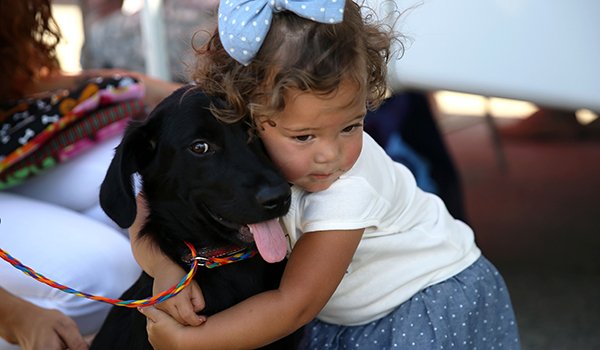
In divorce cases, the welfare of the children is rightly the central point from which all considerations stem. Increasingly, however, as one or both spouses often regard pets as their “children”, greater focus is placed on them within divorce proceedings by the parties. This importance placed on pets is also leading to an increasing number of “dog-nups”. But what are “dog-nups” and how do the courts resolve disputes involving family pets following divorce or separation?
What are “dog-nups”?
Although many may see their pet as their “child”, the law does not recognise them as such. Instead, pets are seen as property in the eyes of the law, the same as a piece of furniture, for example, so there are no special provisions for pets. This is likely a key factor behind why many couples are seeking to document what would happen to their pet(s) in the event of a breakup, such as upkeep costs and who will care for the pet and when. This type of agreement is colloquially known as a “pet-nup” or “dog-nup” (due to many such cases involving dogs). This is seen as similar in nature to a “pre-nup” due to its proactive nature; detailing what would occur should the couple divorce.
The Guardian reports that in the past year there were 30,000 divorce cases involving a dispute over a pet. It may, therefore, be unsurprising that reportedly one in 20 pet-owning couples now have a “pet-nup” (with many more stating they would consider entering into one). This is a rapid increase from the numbers even as recent as 2014, where the first legally binding pet-nup was said to have been created by the animal welfare charity, Blue Cross.
A key reason behind such an increase is perhaps due to high profile celebrity divorces where pets are a contentious issue. For example, Ant McPartlin and Lisa Armstrong recently battled over who will get custody over their Labrador, Hurley, and when Cheryl and Ashley Cole divorced, they ensured their dog Coco was shared between them to “keep the peace”. This public awareness, coupled with Britain being a nation of pet lovers, is leading many to increasingly ask, “who will get custody of the pet if we divorce?” This is leading many to consider “pet-nups”.
How do the courts resolve disputes involving family pets following divorce or separation?
The courts’ standard position in determining disputes with pets on divorce places children at the centre. In practice, this means that any pets will often stay with the children, particularly if they were close to the children. A key reason behind this is because such an approach will be in the children’s best interests if it helps to minimise the breakdown of their parents’ relationship.
However, in cases where there are no children, resolving disputes with pets is more uncertain. Here, the courts will exercise more discretion in determining what happens to the pets. In doing so, the Court will consider various factors to determine who should look after the pet, when and on what terms. Such factors, among others, may include whether any one spouse owned the pet initially, who paid for the pet, whether one spouse disproportionately looked after the pet’s daily needs, whether the partners want the pet full-time and the living arrangements of the parties (e.g. whether a partner’s rented accommodation allows pets).
Once the Court has considered the relevant factors, there are numerous possible outcomes. For example, some common outcomes include the court ordering that the pet be cared for by one party only, the pet be cared for jointly by both parties or the parties sell the pet and split the cost. However, it is important to note that such outcomes may be more complex to implement in practice than perhaps they first appear. For instance, if both parties are to jointly care for the pet, it may be the case that each partner looks after the pet for a few months each or that a contact schedule be required, just as would be the case with a child, which would delineate the ex-couple may look after the pet for specific days separately each week.
Even where there exists a “pet-nup”, there is no absolute certainty as there may be issues around its enforceability if there is a dispute and ultimately the Court will decide what should happen to the pet.
What the above highlights then is that the courts do not see animals as akin to children in divorce proceedings but rather as property.
How Grayfords can help
Neil Graham, a Partner at Grayfords comments: “Feelings often run high on the breakdown of a relationship when it comes to pets, not just in relation to the pedigree ones which can often be very valuable but also in relation to the faithful four-legged, feathered or any other variety to whom the parties are understandably devoted. In the eyes of the law, pets are still property, and there is nothing the Courts dislike more than having to become involved in property disputes. Including a clause in a pre-nuptial or post-nuptial agreement which provides for pets is a sensible idea in order to minimise the chances of a dispute later. Alternatively, finding imaginative solutions which enable both parties to continue to share in the life of their faithful companion is always better than going to Court. We are always willing and able to assist with the above.”
This article was written by Neil Graham and Ishtiaq Shafiq.

